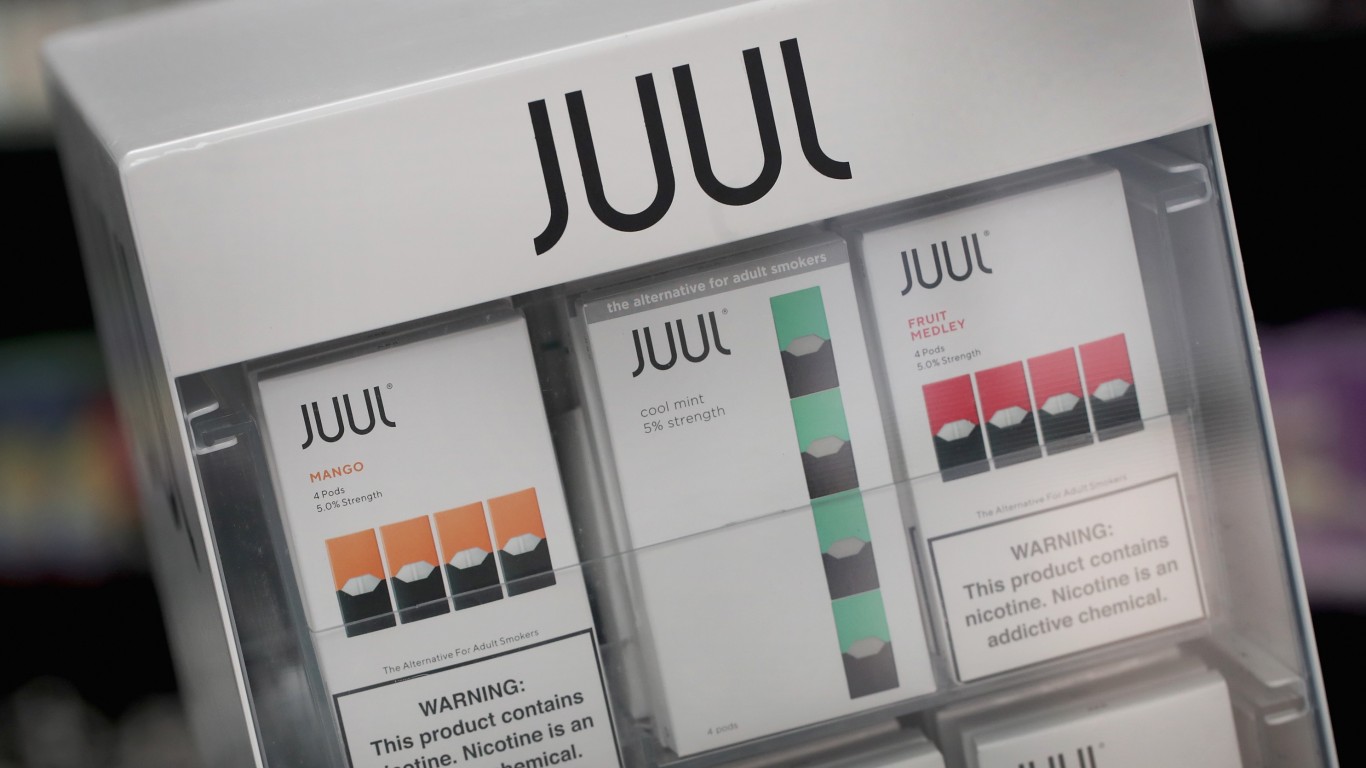Companies and Brands
Federal Trade Commission Upends Altria's $12.8 Billion Juul Investment

Published:

The U.S. Federal Trade Commission (FTC) on Wednesday filed an administrative complaint alleging that Altria Group Inc. (NYSE: MO) and e-cigarette maker Juul Labs violated federal antitrust laws when Altria invested $12.8 billion in Juul late in 2018.
According to the FTC, Altria, maker of Marlboro cigarettes in the United States, and Juul had been competitors until Altria ditched its MarkTen-brand e-cigarettes and made its investment in Juul. According to the FTC’s Ian Conner, “Altria and Juul turned from competitors to collaborators by eliminating competition and sharing in Juul’s profits.”
Altria’s stake in Juul included only an economic interest. The cigarette maker had no voting rights unless and until it converted its non-voting stock to common stock.
Under the terms of the original agreement, Altria said it would not compete with Juul for six years. That agreement was revised in the fourth quarter of 2019 after Altria had written down $8.6 billion of its original investment following an investigation into Juul’s marketing practices and a number of deaths related to vaping.
Other revisions to the original agreement include an option that Altria may exercise to be released from its noncompete obligation if federal law prohibits the sale of vape products for at least a year or if Altria’s carrying value on its $12.8 billion investment does not retain more than 10% of its original value.
Altria’s defense is likely to be based in large part on its agreement with sister company Philip Morris International Inc. (NYSE: PM) to market in the United States a nicotine-delivery device called IQOS. The U.S. Food and Drug Administration (FDA) approved the device in April of last year and U.S. sales began late last year. IQOS is sold as a “heat-not-burn” device that heats up a tobacco stick, releasing nicotine but virtually no smoke. Because the IQOS does not burn anything, Altria doesn’t believe it should be considered an e-cigarette and a competitor to Juul.
Altria could argue that it was hedging its bet on IQOS by making an investment in Juul. If IQOS was a hit, the Juul investment could have been sold or written off. If IQOS was a loser, then at least Altria had an e-cigarette to fall back on.
The first hearing in the FTC suit is scheduled for January 2021, and in a press release Altria said the company was “disappointed with the FTC’s decision [and believes it has] a strong defense and will vigorously defend our investment.”
An FDA ban on flavored e-cigarette pods was announced on January 2 and took effect on February 6. That gives Altria at least 11 months to wiggle out of its deal with Juul. The easiest way to do that would be just to write down the remaining investment. The cigarette maker didn’t even flinch at losing the first $8.6 billion. What’s another $4.2 billion?
In morning trading Thursday, Altria stock was down about 4.8% at $35.80 as investors are demonstrating concern over the 8.69% dividend yield. The stock’s 52-week range is $30.95 to $57.11. and the 12-month price target is $50.47.
Are you ahead, or behind on retirement? For families with more than $500,000 saved for retirement, finding a financial advisor who puts your interest first can be the difference, and today it’s easier than ever. SmartAsset’s free tool matches you with up to three fiduciary financial advisors who serve your area in minutes. Each advisor has been carefully vetted and must act in your best interests. Start your search now.
If you’ve saved and built a substantial nest egg for you and your family, don’t delay; get started right here and help your retirement dreams become a retirement reality.
Thank you for reading! Have some feedback for us?
Contact the 24/7 Wall St. editorial team.